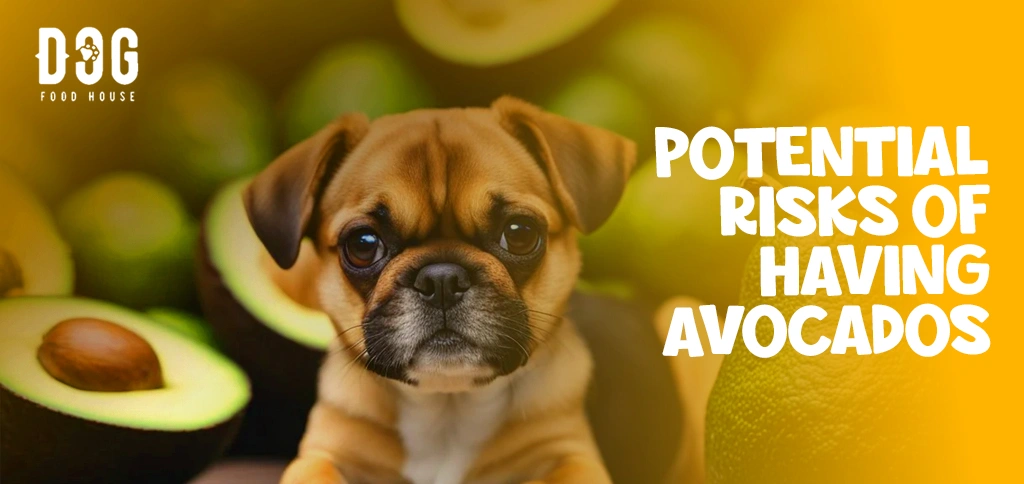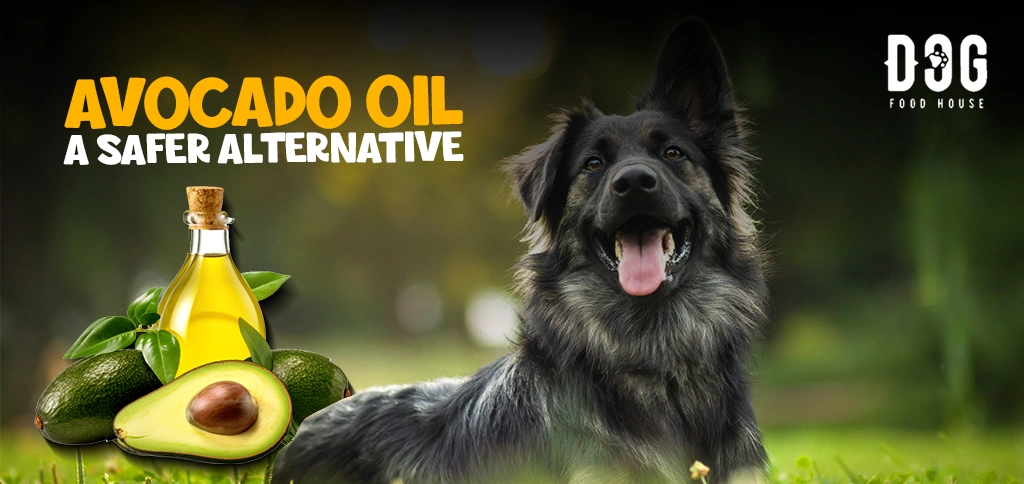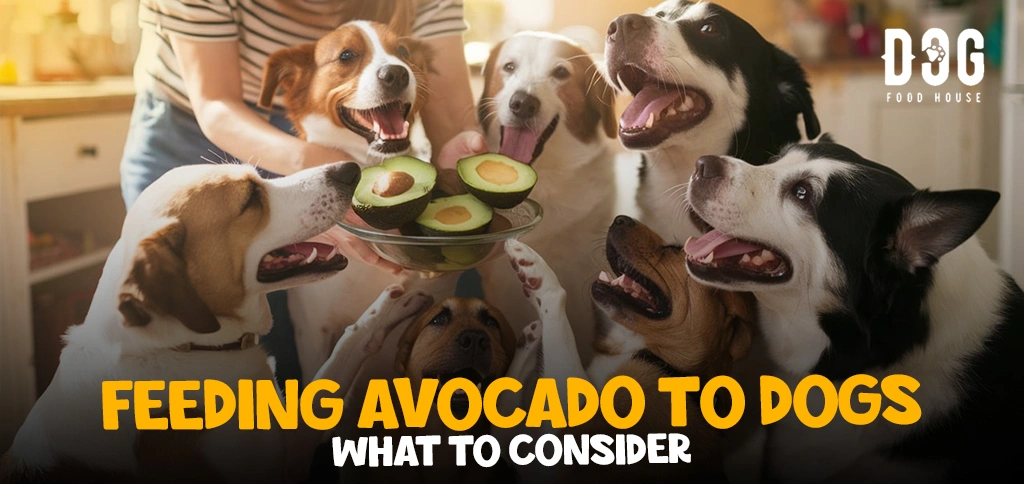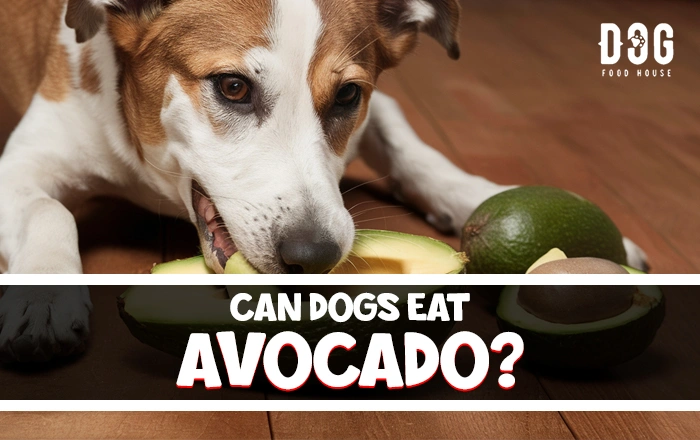No, it’s better to avoid avocado fruit for dogs. It is NOT safe for dogs but only the flesh part in limited and small amounts is. We must know that it is not toxic to dogs but not safe for dogs as well. It contains high-fat contents that are highly undesirable for dogs.
Why are avocados not recommended for dogs? Why is it not considered good for dogs to eat avocados? What are the major hazards of having avocado fruit to dogs? All in this article. Must read before feeding!
Introduction to Avocado and Dogs
Avocados have gained popularity in the last few years. It is added to human diets and contains many health benefits. But for dogs, it is not safe because of the undesirable components present in it. Can Dogs Eat Avocados? Yes, but is it safe for dogs? can dogs eat avocados? It’s the question asked by many canine companions.
Nutritional Profile of avocados:
Avocados have the potential health benefits. It includes vitamins, fatty acids, fiber, vitamins and other nutrients making it the desired fruit for dogs. Avocados also contain “Carotenoids” which shield the dogs from diseases and improve the immune system.
The nutrients it carries are below:
- Fiber
- Omege-3 fatty acids
- Folate
- Vitamin K1
- Vitamin E
- Vitamin B6
- Vitamin C
- Potassium
- Copper
- Carotenoids
Fiber: Is Known for the regulation of the digestive function of smaller dogs. Digestive health is crucial for dogs as it’s the main concern of dog owners for most dogs.
Omege-3 fatty acids: Reduce inflammation mostly found in the skin and joints. They are beneficial for senior dogs who have problems with arthritis.
Folate: Aids in the normal metabolic function of the body. As metabolic activities are necessary for dogs. Digestive problems related to the dog’s stomach will be solved after having folate.
Vitamin K1: It maintains normal blood coagulation. If your pup will be injured it helps them in blood clotting. Prevent excessive blood waste due to injury. Blood coagulation is crucial when you want to save your pet.
Vitamin E: It has defensive properties against oxidative damage. The oxidative stress imbalances the free radicals and damages the cell’s body. It leads to chronic diseases like cancer. It also helps in the fertility of dogs.
Vitamin B6: It works as the main fuel and energy for the dog. It helps generate energy for the body. Energy is the basic requirement for a dog. Mobility in dogs is necessary for dogs.
Vitamin C: Vitamin E and Vitamin C work together to help in improving fertility, in dogs Vitamin C reduces free radicals in the body. Free radicals damage the cell more rapidly.
Potassium: The mineral “potassium” helps to maintain proper heart, muscle, and nerve functions.
All these functions are necessary for the dog’s health.
Copper: It aids in the production of red blood cells. Red blood cells are a significant indicator of good health because red blood cells make the blood in the body.
Potential risks of Having Avocados:

Avocado is not considered safe for dogs due to the high risk of persin, and high-fat content. Persin is not toxic to dogs as it is risky to other animals like cows and horses. Fat contents in large amounts of foods are not safe for many animals and dogs are one of them.
Dogs can eat avocado but not the pit and skin as pits and skin are the major choking hazard for dog’s health. The health risks regarding avocados for dog are the following, Dog Safe from Home Hazards should be considered when introducing any new foods:
Risks of Having Persin Toxicity in Dogs:
Persin: The toxic compound in avocados and the avocado plant is pit risks, which can cause gastrointestinal upset and vomiting. It is a fungicidal toxin. This toxin affects many other animals, especially livestock animals. Persin is a natural antifungal compound that is produced in the avocado plant. Persin the toxin is found in all the parts of avocados.
- Leaves
- fruits
- pits
- seeds
- skin
Leaves have most of it, while the flesh part is considered safe because it contains a low quantity of persin toxin. Luckily, dogs and cats are resistant to persin toxin, unlike livestock animals. But it is also noticed that if a dog eats avocado flesh regularly, it will become a life-threatening fruit for him. For more dietary questions, such as Can Dogs Eat Shrimp, consult your veterinarian.
The symptoms of persin toxicity in dogs include:
- Vomiting
- Diarrhea
- lack of appetite
- Stomach ache
- Myocardial tissues damage
Risks of high-fat content in avocado: Healthy fat or not?
The avocado flesh is completely safe for the pups because it has less persin toxin. However, it’s unsafe for your dog, as it contains high-fat content. The fat present in avocados is healthy but too much of the healthy is not good for small dogs or puppies. They make the stomach upset. Gastrointestinal problems are the major reason when avocado is added to the food.
Pancreatitis: High intake of avocados triggers pancreatitis. It causes inflammation in the pancreas, the digestive organ of dogs.
- Abdominal Pain
- Nausea
- Fever
- Lethargy
- Inappetence
calorie-dense fruit: Avocado flesh is calorie-dense, and unsafe for the dog who wants to lose weight. It will induce obesity in your dog.
Avocado Oil: A Safer Alternative

Avocado is considered safe for dogs as it does not contain a high amount of person in it. It has low persin toxicity and low-fat content. The expert also says: “Do not feed too much dog avocado oil because it has too much healthy fat, which hurts the stomach.
People ask how much avocado oil is safe for dogs. Eating avocado oil or having an avocado meal too much affects the health.
Benefits of avocado oil:
- Anti-inflammatory properties.
- Improve skin health.
Is avocado pit and skin good for dogs?
Avocado pits and skin are highly dangerous for the dogs. They are the major choking hazard for your dog. It will damage the pathway track of the pet. Avoid giving your dog whole avocado.
Can a dog eat guacamole?
Never Give Your Dog Guacamole. While the avocado in guacamole isn’t toxic to dogs. Guacamole and other ingredients are high in the onions and garlic. Don’t let your dog eat guacamole or any other foods of the family of onions.
Feeding Avocado to Dogs: What to Consider

Factors to consider before feeding avocado to dogs, including size, breed, and health conditions of dogs.
preparing avocado meal for dog:
Peel the avocado. remove the skin. discard the pit and seed from the avocado. Save the inner part also called mesocarp for your pup. Only the flesh part is safe for your dog.
What to Do in Case of Avocado Toxicity
Symptoms of avocado toxicity in dogs include vomiting, diarrhea and abdominal pain.
Call your veterinary doctor immediately after monitoring your dog’s symptoms.
Emergency procedures and vet care if a dog eats avocado, including inducing vomiting and administering activated charcoal
Special Cases and Precautions
- Puppies and avocado consumption: not recommended due to high-fat content and potential toxicity
- Feeding avocado to dogs with certain health conditions, such as pancreatitis, diabetes, and hypothyroidism: not recommended or with caution
Managing Avocado Allergies in Dogs
Identify and manage avocado allergies in dogs. Can dogs eat avocados? Consult with a veterinarian doctor after seeing the signs of allergy in the dog. The amount of avocado should not be too much for your pet.
Conclusion
The answers to the frequent question: can dogs have avocado?
Yes, dogs have avocado oil, not avocado. The whole avocado has many parts and it contains a high amount of people and high fat content. A few drops to 1 teaspoon mixed into your dog’s food can be appropriate for your small amount of medium-sized dog.
- A balanced amount of avocado is safe for your canine health, considering both potential benefits and risks
- Avoid feeding your dog avocado altogether. If your dogs eat avocados regularly it will not make them healthy.
- Always consult with a veterinarian before introducing new foods, including avocado, into a dog’s diet.

